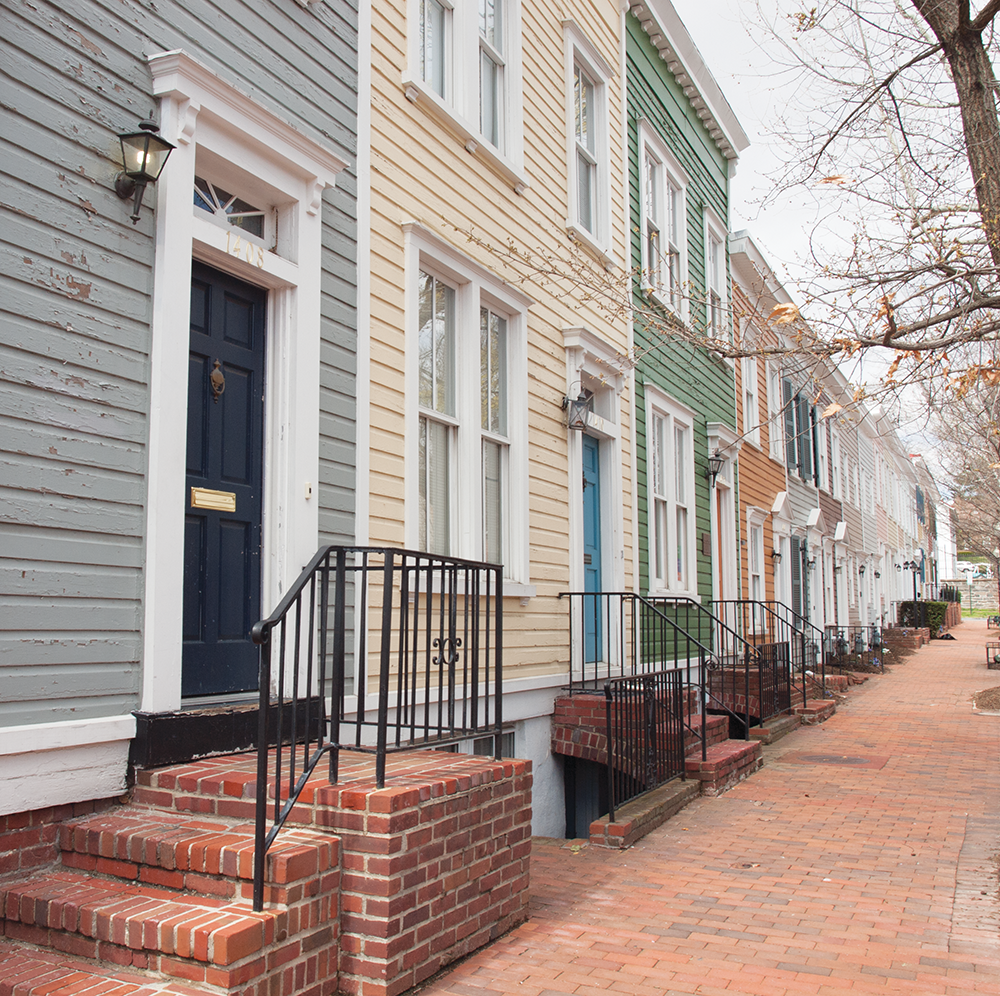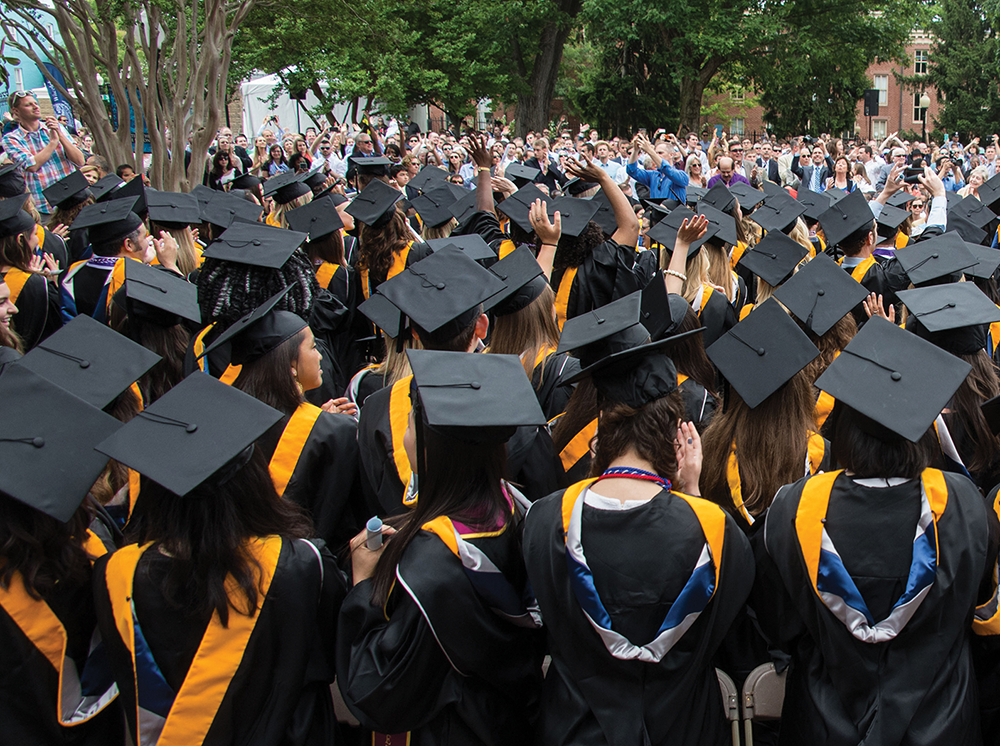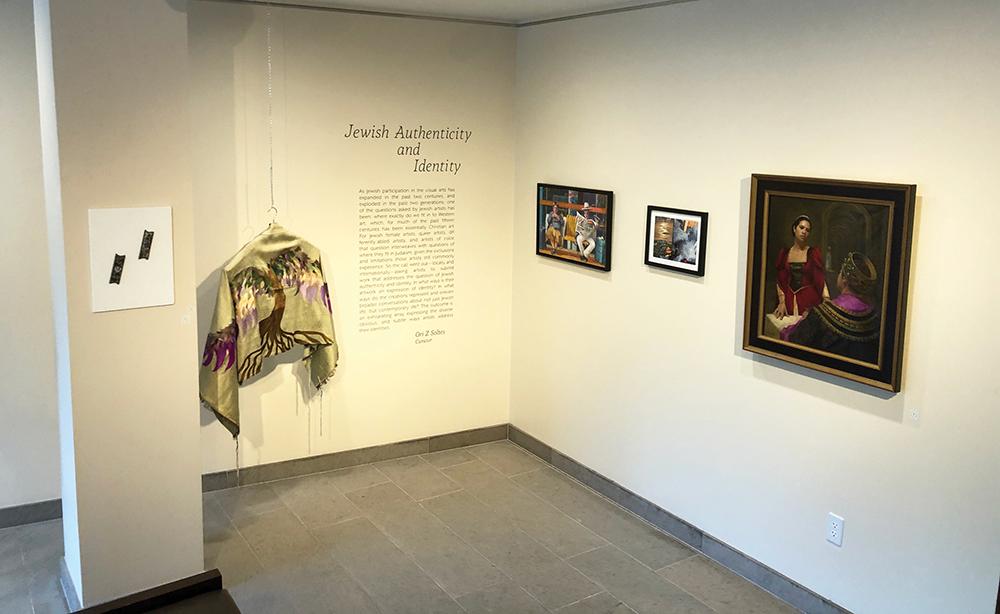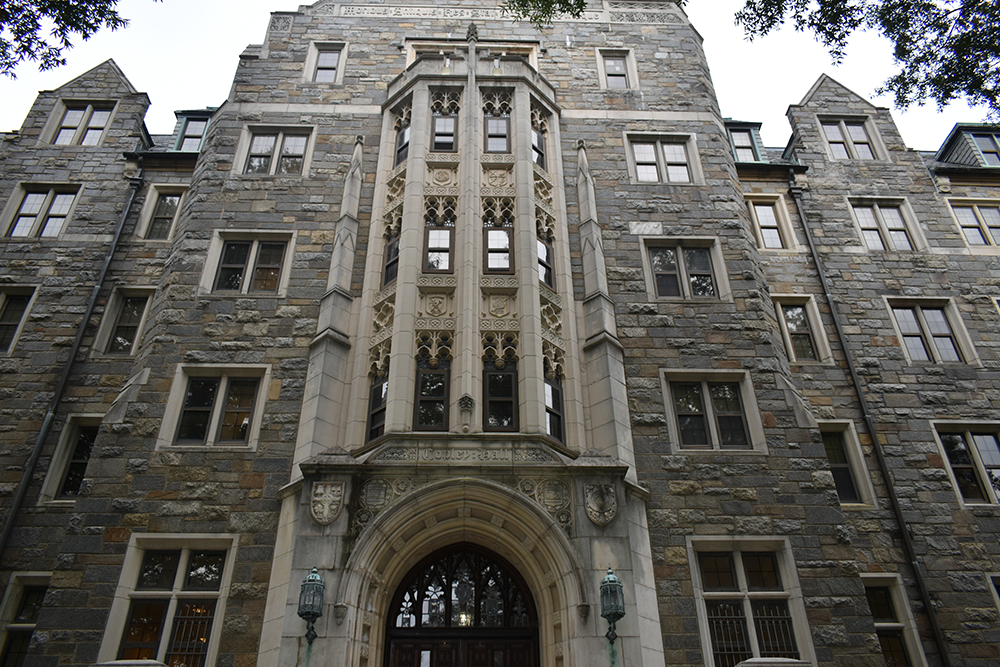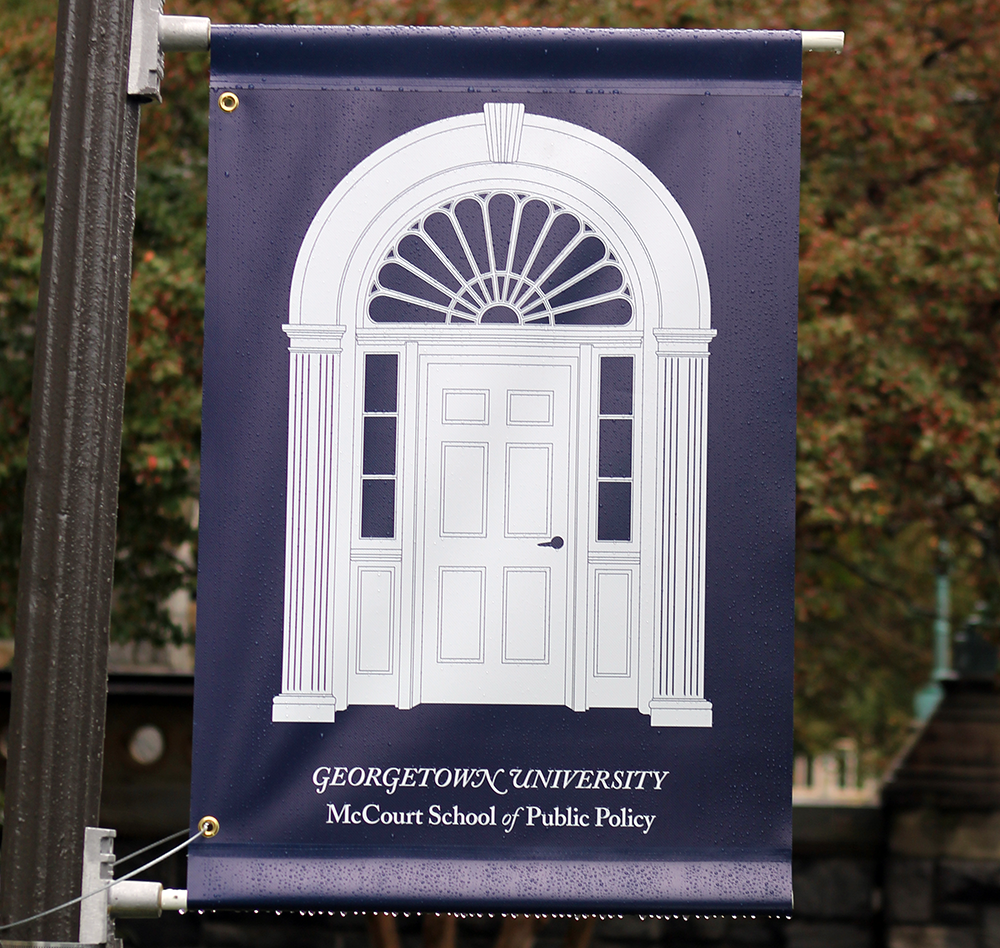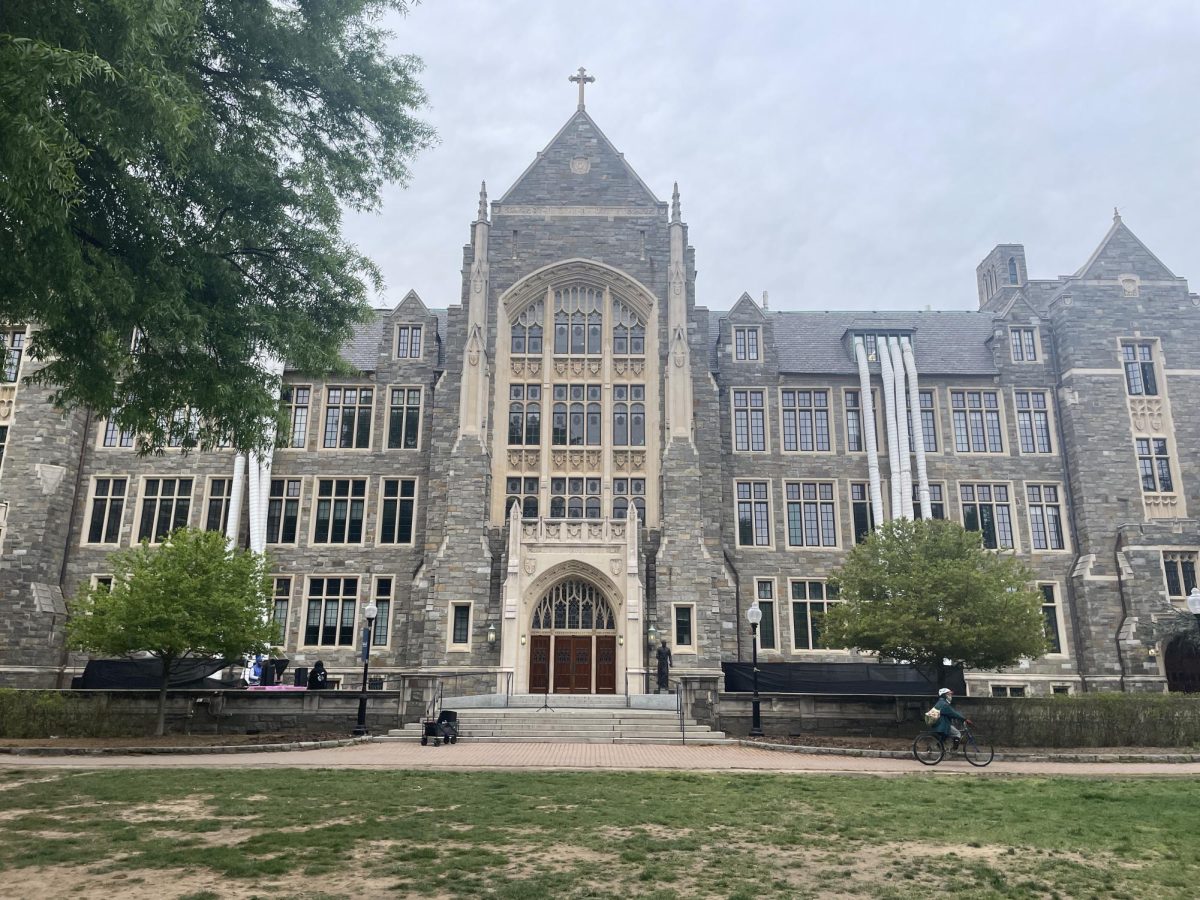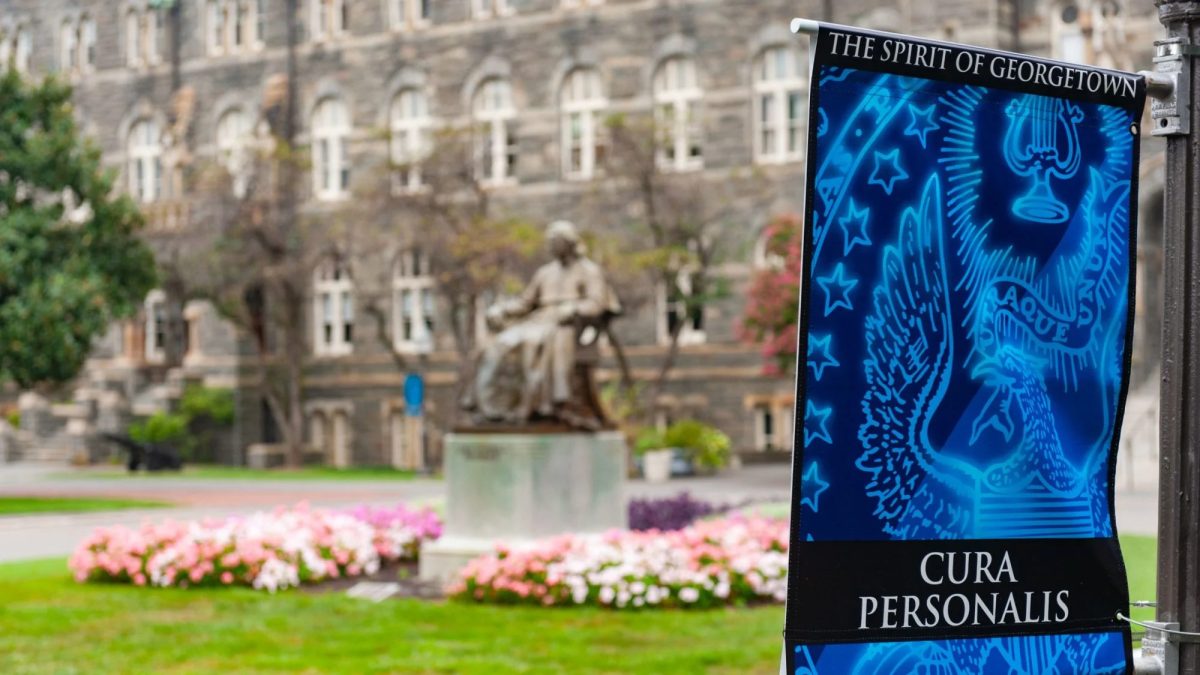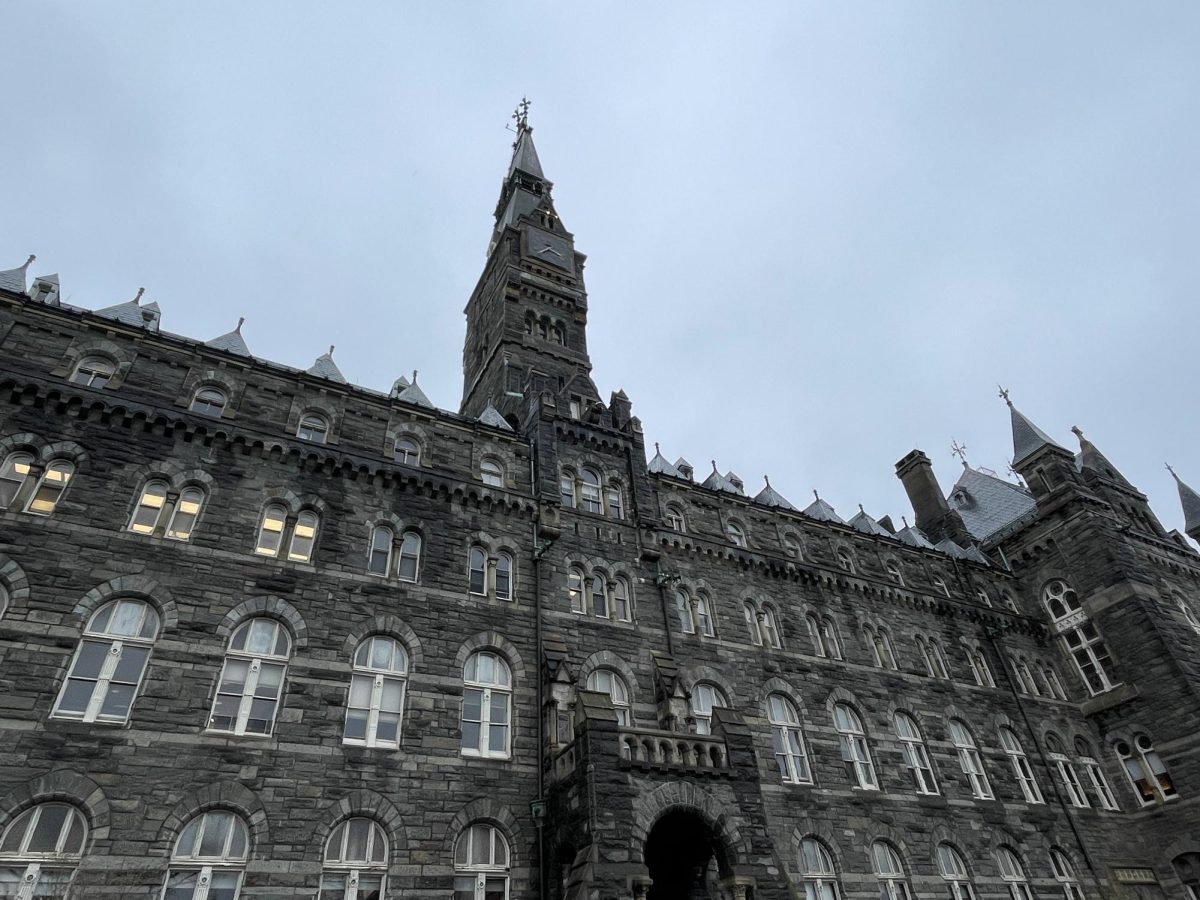Despite facing a host of new challenges because of the COVID-19 pandemic, the Ferretti-Badger administration says it has stayed committed to advocating for students, addressing both current student needs and long-term goals.

Georgetown University Student Association President Nicolo Ferretti (SFS ’21), Vice President Bryce Badger (MSB ’21) and members of the GUSA press team reflected on the administration’s progress and failures during a meeting with campus media Oct. 27.
The bulk of the discussion focused on GUSA’s response to pandemic-related issues. As soon as Georgetown University announced students had to leave campus in March because of the spreading coronavirus, the newly elected GUSA executives realized they would have to put their plans and campaign promises on hold to address the evolving situation. Navigating a pandemic without a map proved difficult, however.
“We were the first people to ever go through an administration like this,” Badger said. “There was no blueprint, no instruction manual to follow. There was no mold we could build our administration around.”
Ferretti and Badger have not seen each other in person since March, and they have never met some of the newer members of the GUSA Executive, which has made working together more difficult, according to Badger. The struggles that come with working online have also been a hindrance.
“It’s exhausting, and it weighs you down, and getting people to do their best work in this environment has been a struggle,” Ferretti said. “I think the way we have been able to work well together is we’ve been super understanding. I think that flexibility has been key to whatever success we have had getting over this fatigue.”
Early on in the transition to online learning, the GUSA Executive team took steps to keep the student body informed about administrative decisions and bring student concerns to the attention of administrators, according to Ferretti and Badger. The team updated students on developments in university policy through GroupMe chats and routine email blasts, while also gathering student feedback through surveys.
Working through the challenges of the pandemic, Ferretti and Badger said they have still made progress toward their long-term goals, which include sustainability and inclusivity. The GUSA veterans campaigned on promises of increased sustainability efforts, elevation of marginalized student voices and greater advocacy for survivors of sexual assault. Ferretti said he was particularly proud of the work the team is doing to transition Georgetown from nonrenewable energy sources to more wind and solar energy. The executives said they have collaborated with the university’s Office of Sustainability to increase the proportion of university power sources from renewable resources. Another success they touted is dorm renovations, including the replacement and renovation of HVAC and new ramps for more accessibility.
“We were fortunate, recently, that a lot of dorm renovations just got approved, and these were all renovations that we were pushing for for a while. Actually, this is something that I’ve been working on since I first started as a senator,” Ferretti said.
The GUSA executives were also pressed on the organization’s tarnished reputation as an exclusive and competitive student group. The GUSA Senate faced a wave of controversy during its fall election cycle after several candidates dropped out of the race, citing a toxic culture. While the senate does not fall under Ferretti and Badger’s purview, Ferretti said he did not know if GUSA culture on the whole has improved.
“I don’t know how much the culture has changed, and it’s hard for me to gauge that because I’ve heard conflicting accounts,” Ferretti said. “Negative opinions are helpful if they are accurate.”
Badger also highlighted the work the GUSA Executive has been doing around mental health, particularly its intersectionality with race. The GUSA vice president and policy chairs from the Mental Health Policy Team and the Race & Inclusivity Committee have begun work on a platform called “Me, Myself, and Mind,” which Badger described as a forum for students to share personal experiences with mental health, specifically students of color and low-income students.
“The purpose of it was that people know they are not alone and that no matter where you are — no matter what resources you don’t have access to, no matter where you are in the world — there are other students who are also in similar situations,” Badger said.
Ferretti and Badger pointed out these projects would not be possible without the foundations that have been built by other student groups. The pair highlighted the work of the Black Survivors Coalition and the Georgetown Disability Alliance.
“We are rarely the leaders when working with activist groups; we are there as a supportive body working within their system. They are the ones with the goals,” Ferretti said.
Looking forward, Ferretti and Badger hope to continue advocating for mental health, academic accommodations and revamped bystander trainings. The pair say they are currently involved in discussions with administrators about plans for the spring semester and are continuing to bring student concerns to the attention of the university.
“We are really focused on making sure that students with high needs — needs for housing stability, needs for safe housing, needs for accommodations because of disability, whatever it may be — have a spot on campus,” Ferretti said. “In terms of on-campus students, this is the next big area because they are facing a lot of immediate issues that we definitely need to address before the end of the semester.”
GUSA has also taken an active role in financial aid reform and has a representative who works with the Office of Student Financial Services to advocate for students. In early August, the Ferretti-Badger administration led student efforts to reform the financial aid process after many students reported unexplained decreases in their financial aid packages. In addition to trying to meet the needs of individual students, GUSA members are also calling for more systemic changes to promote equity, according to Ferretti.
Badger and Ferretti agreed their working relationship with the Georgetown administration is a positive one, but they are often frustrated with administrators’ dismissal of student concerns.
“We need to call them out when they are doing stuff that’s not good for students and push for things that they are not going to be comfortable with,” Badger said. “I think that comes with the job; that’s just a reality we have to deal with.”
In the second half of their term, the pair are thinking forward and preparing for the next GUSA executive election in February 2021, when they will need to pass on their roles, according to Badger.
“The only way that stuff keeps getting pushed through is years of different GUSA administrations working on things, not just one, so we are very focused on making sure that these projects do continue going forward after we leave office,” Badger said.








